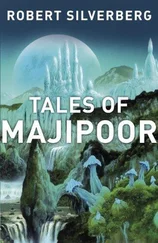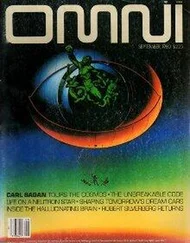Robert Silverberg - Getting to Know the Dragon
Здесь есть возможность читать онлайн «Robert Silverberg - Getting to Know the Dragon» весь текст электронной книги совершенно бесплатно (целиком полную версию без сокращений). В некоторых случаях можно слушать аудио, скачать через торрент в формате fb2 и присутствует краткое содержание. Год выпуска: 2003, ISBN: 2003, Издательство: HarperCollins, Жанр: Альтернативная история, на английском языке. Описание произведения, (предисловие) а так же отзывы посетителей доступны на портале библиотеки ЛибКат.
- Название:Getting to Know the Dragon
- Автор:
- Издательство:HarperCollins
- Жанр:
- Год:2003
- ISBN:978-0-380-97859-5
- Рейтинг книги:5 / 5. Голосов: 1
-
Избранное:Добавить в избранное
- Отзывы:
-
Ваша оценка:
- 100
- 1
- 2
- 3
- 4
- 5
Getting to Know the Dragon: краткое содержание, описание и аннотация
Предлагаем к чтению аннотацию, описание, краткое содержание или предисловие (зависит от того, что написал сам автор книги «Getting to Know the Dragon»). Если вы не нашли необходимую информацию о книге — напишите в комментариях, мы постараемся отыскать её.
Getting to Know the Dragon — читать онлайн бесплатно полную книгу (весь текст) целиком
Ниже представлен текст книги, разбитый по страницам. Система сохранения места последней прочитанной страницы, позволяет с удобством читать онлайн бесплатно книгу «Getting to Know the Dragon», без необходимости каждый раз заново искать на чём Вы остановились. Поставьте закладку, и сможете в любой момент перейти на страницу, на которой закончили чтение.
Интервал:
Закладка:
At last the day of sailing. Down the River Baetis from Sevilla to the Ocean Sea, and quickly out to the Isles of the Canaria, where, however, they saw none of the huge dogs for which the place is named. But they did find the noteworthy Raining Tree, from whose gigantic swollen trunk the entire water supply of one island was derived. I think this tree has perished, for no one has seen it since.
Then came the leap across the sea to the New World, a journey hampered by sluggish winds. They crossed the Equator; the pole-star no longer could be seen; the heat melted the tar in the ships’ seams and turned the decks into ovens. But then came better sailing, and swiftly they reached the western shore of the southern continent where it bulges far out toward Africa. The Empire of Peru had no sway in this place; it was inhabited by cheerful naked people who made a practice of eating human flesh, “but only,” the Emperor tells us, “their enemies.”
It was Trajan’s intention to sail completely around the bottom of the continent, an astounding goal considering that no one knew how far south it extended, or what conditions would be encountered at its extremity. For that matter, it might not come to an end in the south at all, and so there would be no sea route westward whatever, but only a continuous land mass running clear down to the southern pole and blocking all progress by sea. And there was always the possibility of meeting with interference by Peruvian forces somewhere along the way. But southward they went, probing at every inlet in the hope that it might mark the termination of the continent and a connection with the sea that lay on the other side.
Several of these inlets proved to be the mouths of mighty rivers, but wild hostile tribes lived along their banks, which made exploration perilous; and Trajan feared also that these rivers would only take them deep inland, into Peruvian-controlled territory, without bringing them to the sea on the continent’s western side. And so they continued south and south and south along the coast. The weather, which had been very hot, swiftly worsened to the south, giving them dark skies and icy winds. But this they already knew, that the seasons are reversed below the Equator, and winter comes there in our summer, so they were not surprised by the change.
Along the shore they found peculiar black and white birds that could swim but not fly; these were plump and proved good to eat. There still appeared to be no westerly route. The coast, barren now, seemed endless. Hail and sleet assailed them, mountains of ice floated in the choppy sea, cold rain froze in their beards. Food and water ran low. The men began to grumble. Although they had an Emperor in their midst, they began to speak openly of turning back. Trajan wondered if his life might be in danger.
Soon after which, as such wintry conditions descended upon them as no man had ever seen before, there came an actual mutiny: the captains of two ships announced that they were withdrawing from the expedition. “They invited me to meet with them to discuss the situation,” Trajan wrote. “Plainly I was to be killed. I sent five trusted men to the first rebel ship, bearing a message from me, with twenty more secretly in another boat. When the first group came aboard and the rebel captain greeted them on deck, my ambassadors slew him at once; and then the men of the second boat came on board.” The mutiny was put down. The three ringleaders were executed immediately, and eleven other men were put ashore on a frigid island that had not even the merest blade of grass. I would not have expected Trajan Draco to treat the conspirators mildly, but the calm words in which he tells of leaving these men to a terrible death were chilling indeed.
The voyagers went on. In the bleak southern lands they discovered a race of naked giants—eight feet tall, says Trajan—and captured two to bring back to Roma as curiosities. “They roared like bulls, and cried out to the demons they worshiped. We put them on separate ships, in chains. But they would take no food from us and quickly perished.”
Through storms and wintry darkness they proceeded poleward, still finding no way west, and even Trajan began now to think they would have to abandon the quest. The sea now was nearly impassable on account of ice: they found another source of the fat flightless birds, though, and set up winter camp on shore, remaining for three months, which greatly depleted their stores of food. But when in weather that was fairer, though still quite inhospitable, they decided finally to go on, they came almost at once to what is now known as the Strait of Trajan near the continent’s uttermost point. Trajan sent one of his captains in to investigate, and he found it narrow but deep, with a strong tidal flow, and salty water throughout: no river, but a way across to the Western Sea!
The trip through the strait was harrowing, past needle-sharp rocks, through impenetrable mists, over water that surged and boiled from one wall of the channel to another. But green trees now appeared, and the lights of the natives’ campfires, and before long they emerged in the other sea: “The sky was wondrously blue, the clouds were fleecy, the waves were no more than rippling wavelets, burnished by the brilliant sun.” The scene was so peaceful that Trajan gave the new sea the name of Pacificus, on account of its tranquility.
His plan now was to sail due west, for it seemed likely to him then, entering into this uncharted sea, that Cipangu and Khitai must lie only a short distance in that direction. Nor did he desire to venture northward along the continent’s side because that would bring him to the territory of the belligerent Peruvians, and his five ships would be no match for an entire empire.
But an immediate westward course proved impossible because of contrary winds and eastward-bearing currents. So northward he went anyway, for a time, staying close to shore and keeping a wary eye out for Peruvians. The sun was harshly bright in the cloudless sky, and there was no rain. When finally they could turn to the west again, the sea was utterly empty of islands and looked vast beyond all imagining. By night strange stars appeared, notably five brilliant ones arranged like a cross in the heavens. The remaining food supply dwindled rapidly; attempts at catching fish proved useless, and the men ate chips of wood and mounds of sawdust, and hunted down the rats that infested the holds. Water was rationed to a single sip a day. The risk now was not so much another mutiny as out-and-out starvation.
They came then to some small islands, finally: poor ones, where nothing grew but stunted, twisted shrubs. But there were people there too, fifteen or twenty of them, simple naked people who painted themselves in stripes. “They greeted us with a hail of stones and arrows. Two of our men were slain. We had no choice but to kill them all. And then, since there was no food to be found on the island except for a few pitiful fishes and crabs that these people had caught that morning and nothing of any size or substance was to be had off shore, we roasted the bodies of the dead and ate those, for otherwise we would surely have died of hunger.”
I cannot tell you how many times I read and reread those lines, hoping to find that they said something other than what they did. But they always were the same.
In the fourth month of the journey across the Pacificus other islands appeared, fertile ones, now, whose villagers grew dates of some sort from which they made bread, wine, and oil, and also had yams, bananas, coconuts, and other such tropical things with which we are now so familiar. Some of these islanders were friendly to the mariners, but most were not. Trajan’s journal becomes a record of atrocities. “We killed them all; we burned their village as an example to their neighbors; we loaded our ships with their produce.” The same phrases occur again and again. There is not a word of apology or regret. It was as if by tasting human flesh they had turned into monsters themselves.
Читать дальшеИнтервал:
Закладка:
Похожие книги на «Getting to Know the Dragon»
Представляем Вашему вниманию похожие книги на «Getting to Know the Dragon» списком для выбора. Мы отобрали схожую по названию и смыслу литературу в надежде предоставить читателям больше вариантов отыскать новые, интересные, ещё непрочитанные произведения.
Обсуждение, отзывы о книге «Getting to Know the Dragon» и просто собственные мнения читателей. Оставьте ваши комментарии, напишите, что Вы думаете о произведении, его смысле или главных героях. Укажите что конкретно понравилось, а что нет, и почему Вы так считаете.












